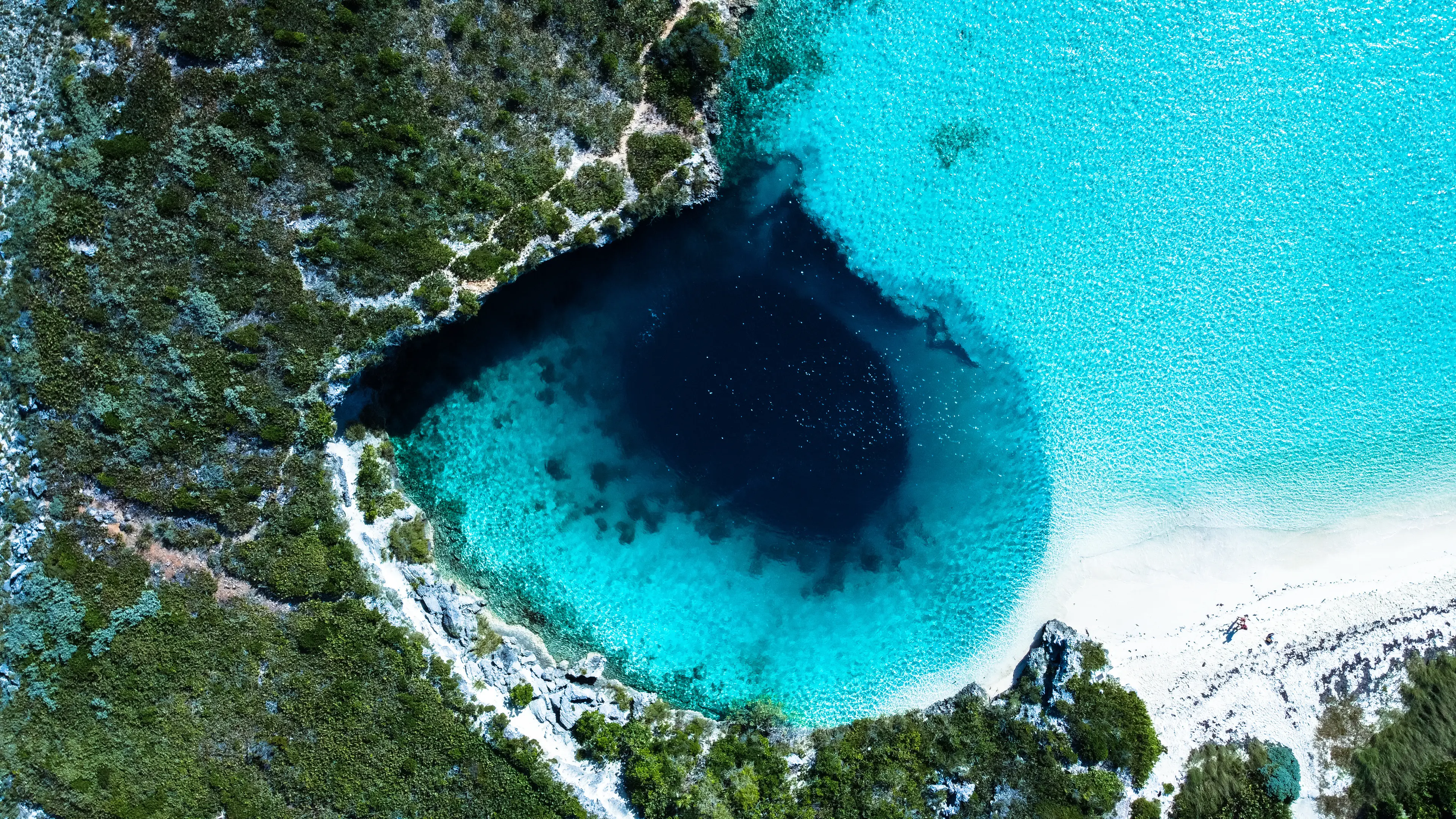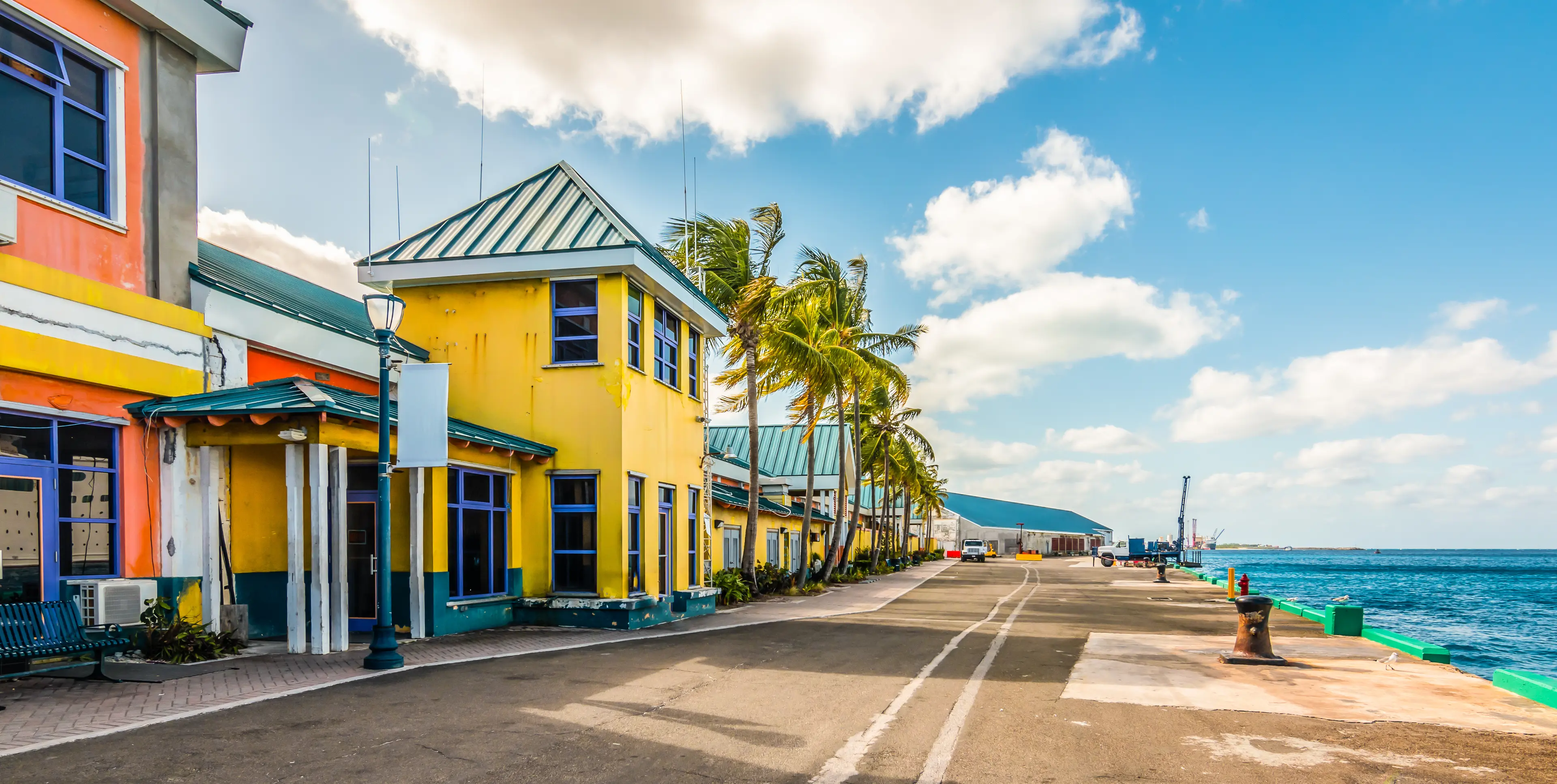3-Day Local Experience: Bahamas Sightseeing, Gastronomy, and Shopping
Bahamas
3 days
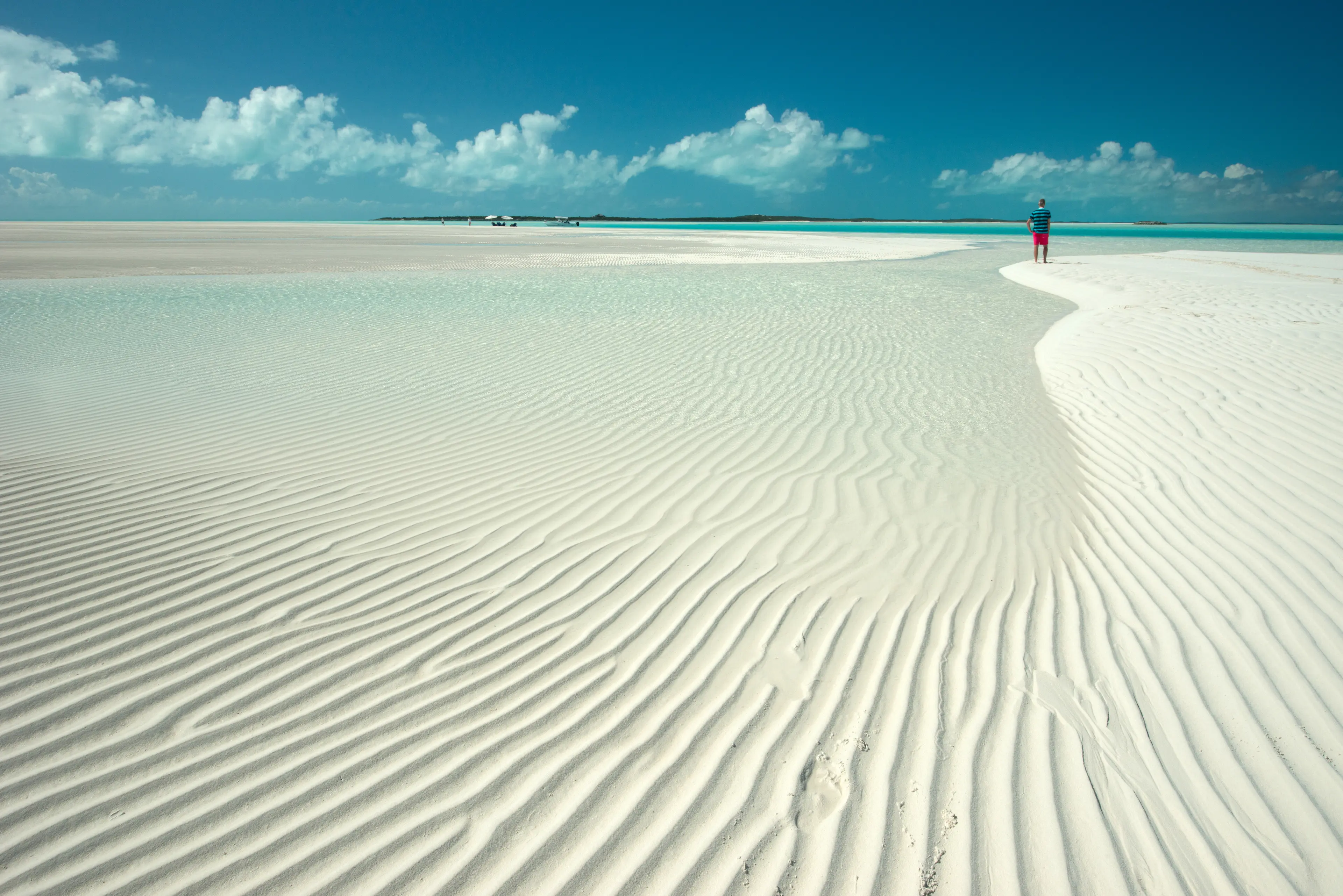
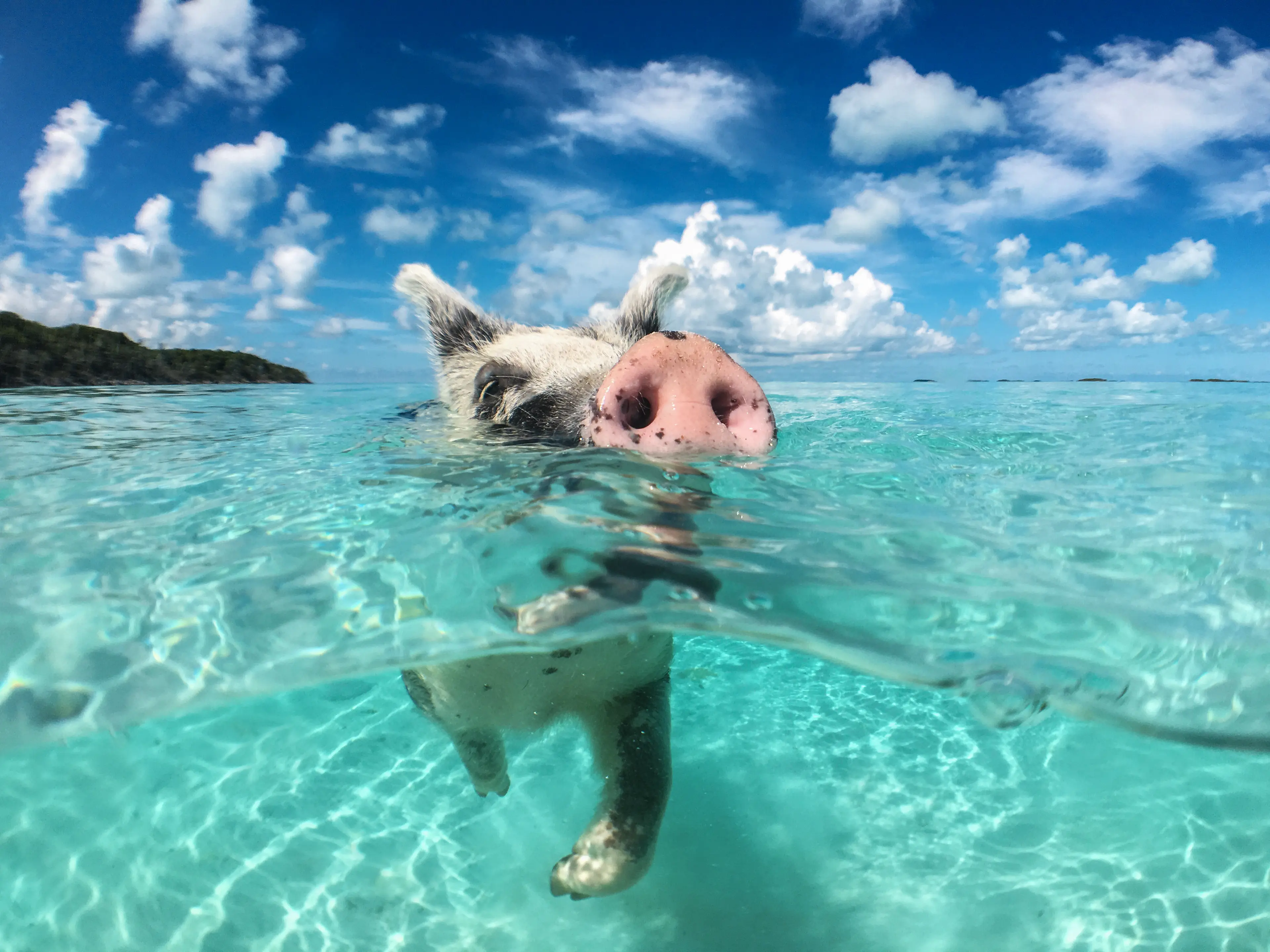
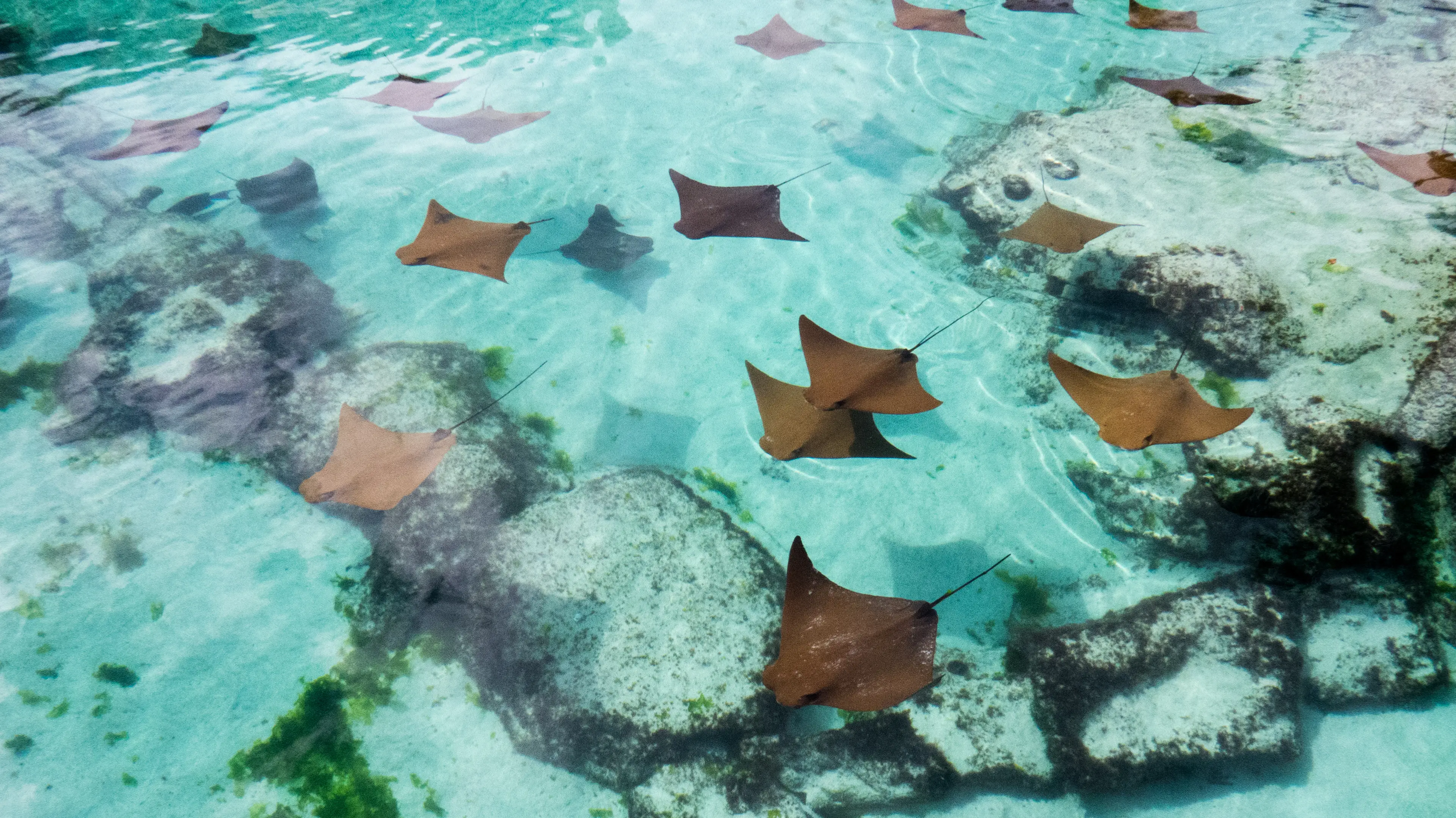
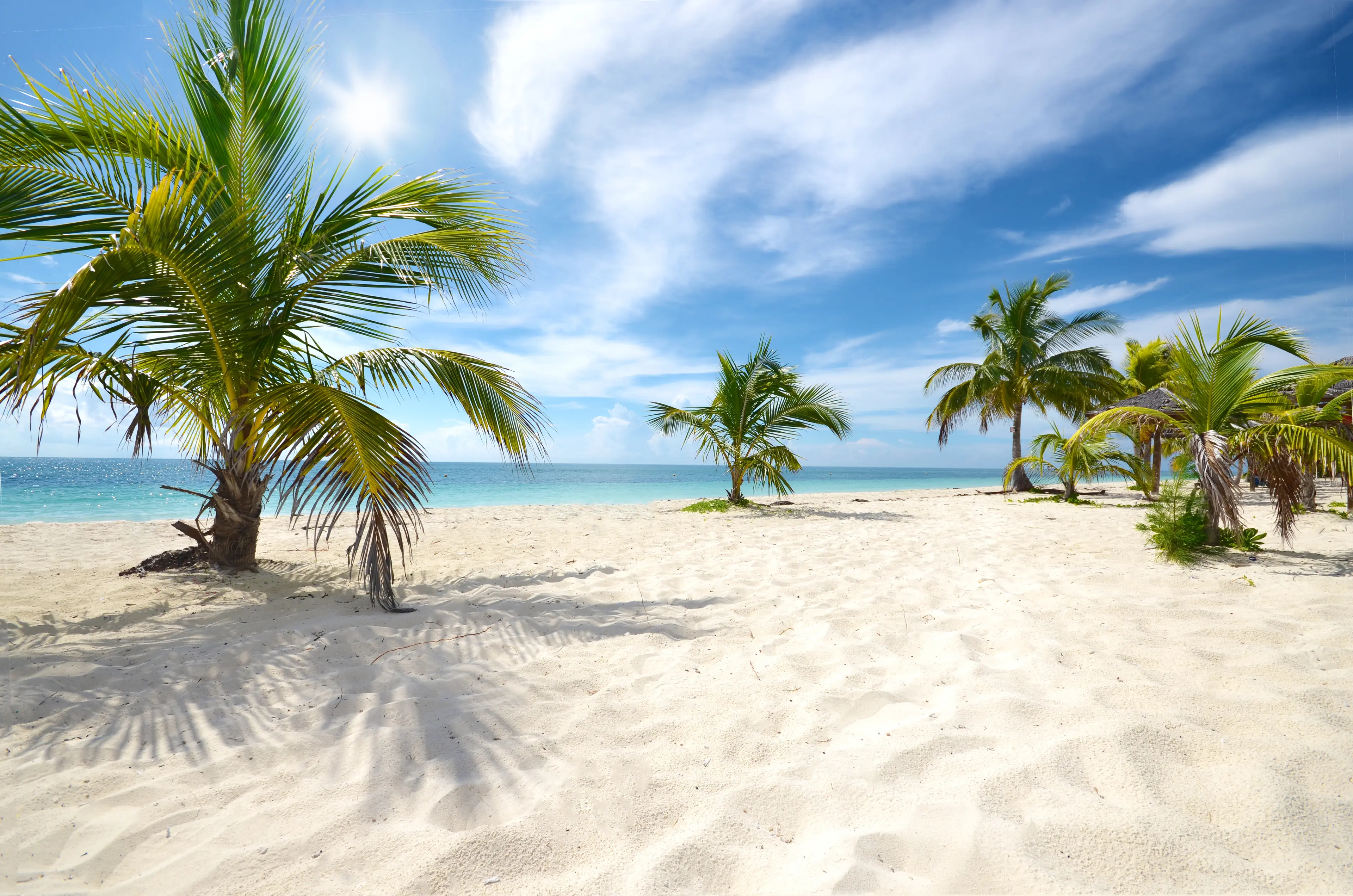
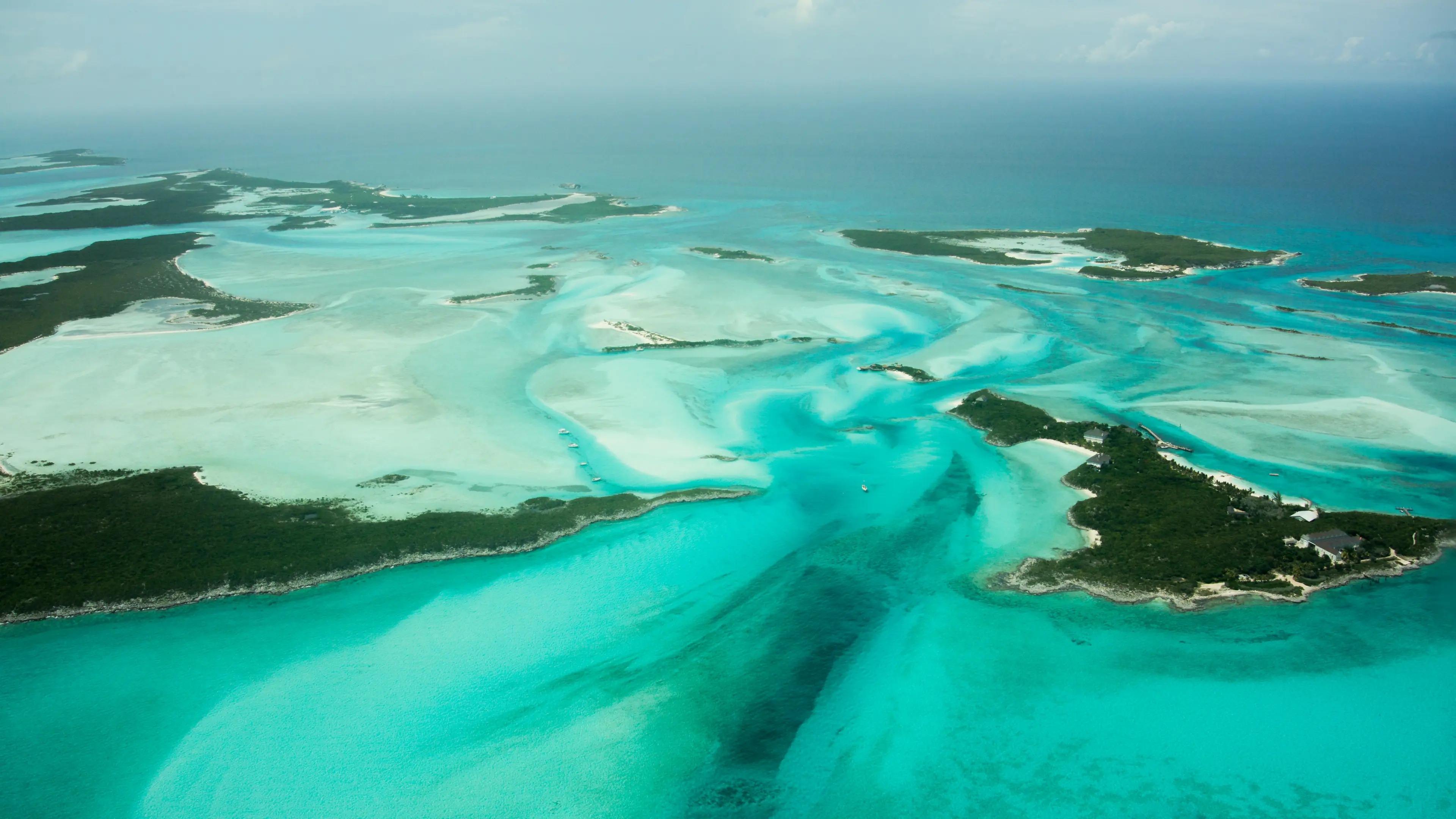
About Bahamas
Experience the ultimate tropical paradise in the Bahamas, a cluster of 700 breathtaking islands and cays. Immerse yourself in the rich culture and history of Nassau, the vibrant capital, or escape to the tranquil pink-sand beaches of Harbour Island. Dive into the world's deepest blue hole in Long Island or explore the stunning coral reefs and marine life. The Bahamas offers a plethora of activities for adventure seekers, including fishing, snorkeling, and sailing. Indulge in delectable seafood cuisine, visit the bustling straw markets, or simply relax by the crystal-clear turquoise waters. With its year-round sunshine, friendly locals, and diverse natural beauty, the Bahamas promises an unforgettable vacation.
3-Day Itinerary
Day 2
Art, Shopping, and Music in Nassau
Morning
Start your second day with a visit to a local art museum. Enjoy the diverse collection of Bahamian art.
Lunch
Enjoy a light lunch at a local café. Try the Bahamian johnnycake or the guava duff.
Afternoon
Spend your afternoon shopping at the Straw Market, where you can find a variety of handmade Bahamian crafts and souvenirs.
Dinner
Enjoy a meal at a local seafood restaurant. Try the Bahamian rock lobster or the conch chowder.
Evening
End your day with a visit to a local jazz club. Enjoy the vibrant Bahamian music scene.
Day 3
Nature and History on the Final Day
Morning
Start your final day with a visit to a local botanical garden. Enjoy the diverse flora and fauna of the Bahamas.
Lunch
Enjoy a picnic lunch at a local park. Use the fresh produce you picked up from the Farmers Market on the first day.
Afternoon
Spend your afternoon exploring a local historic fort. Learn about the history of the Bahamas and enjoy the stunning views of the ocean.
Dinner
Enjoy your final dinner at a local restaurant. Try the Bahamian peas n' rice or the baked crab.
Evening
End your trip with a relaxing evening at a local beach. Enjoy the sunset and reflect on your wonderful trip to the Bahamas.
Attractions in Itinerary (4)

1Farmers Market
A market where you can buy fresh local produce, homemade goods, and traditional Bahamian food.
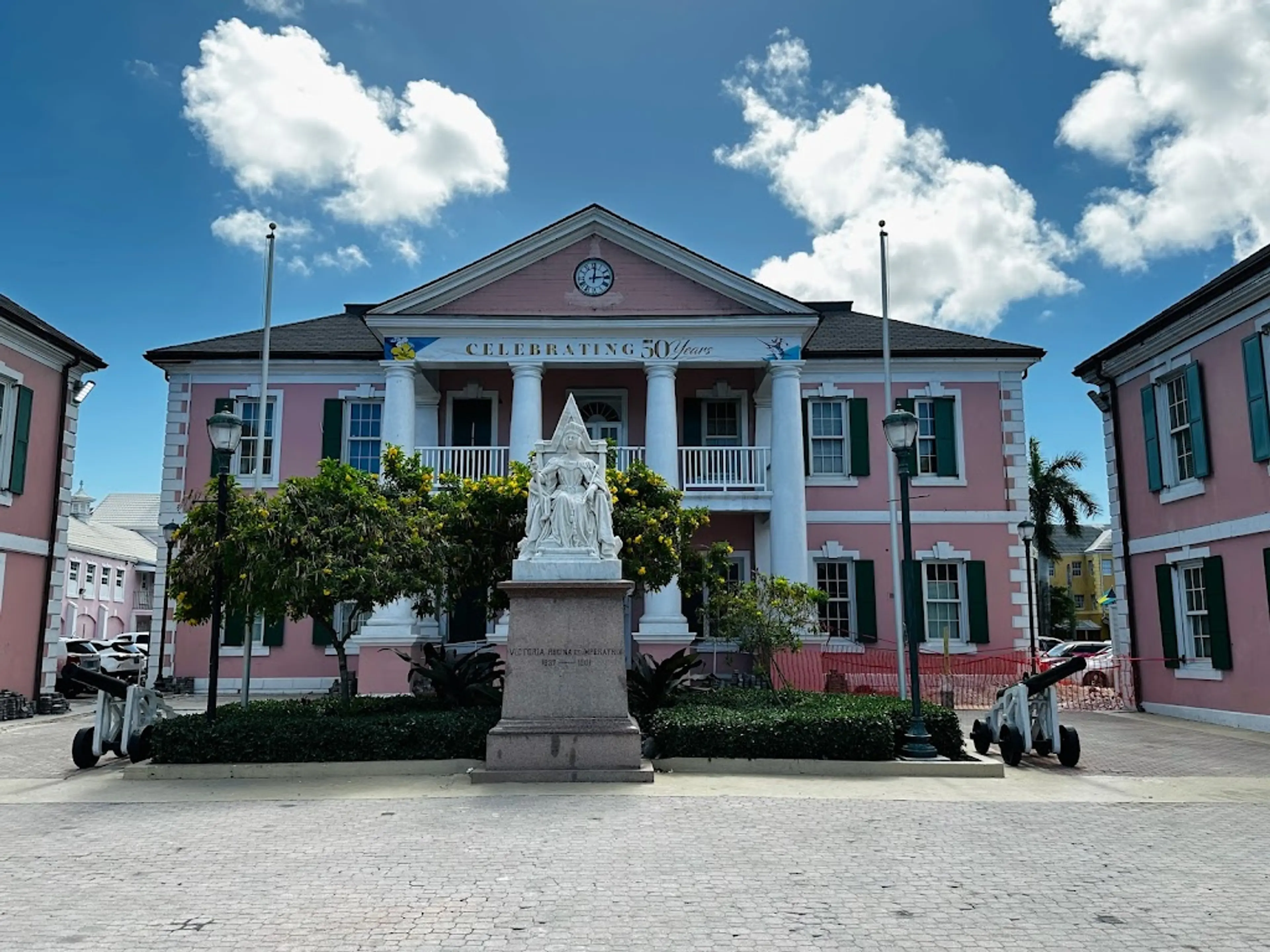
2Government House
The official residence of the Governor General of the Bahamas, known for its beautiful pink exterior.

3Queen's Staircase
A major landmark that is a set of 66 steps built by slaves in the late 18th century. It's one of the most visited attractions in Nassau.
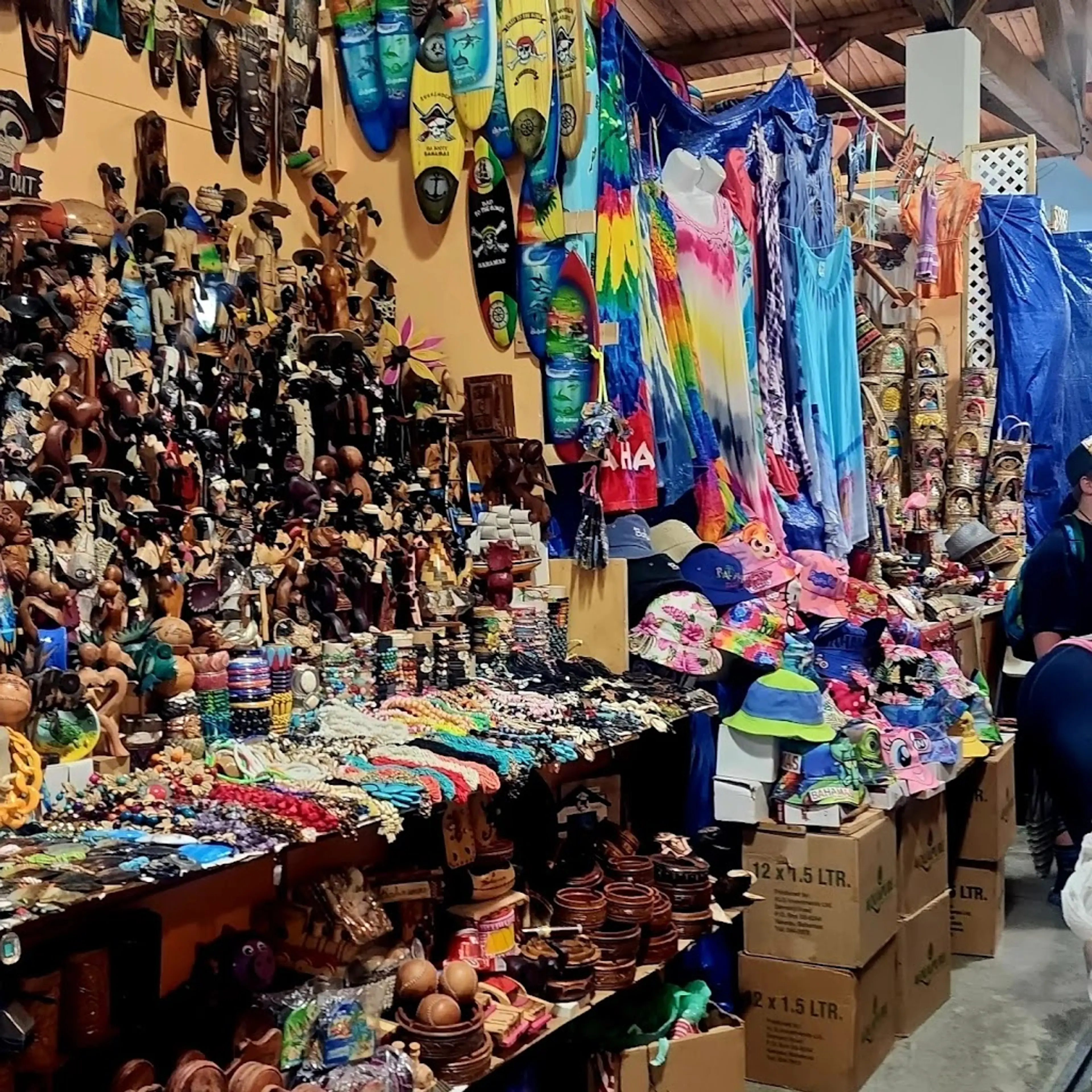
4Straw Market
A traditional market where you can buy handmade Bahamian crafts, gifts, and souvenirs.
Local Food and Drinks (12)
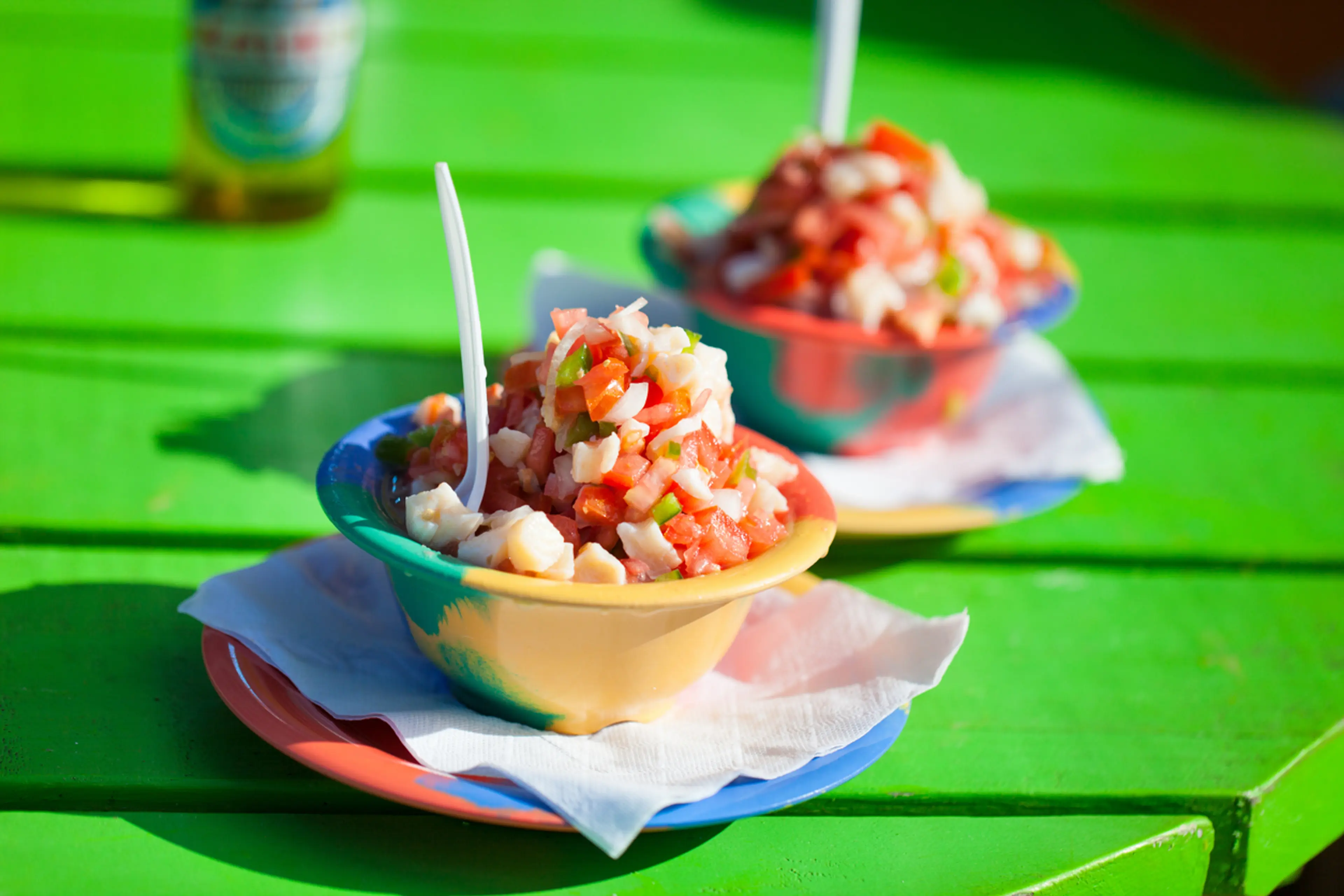
Conch Salad
A refreshing seafood dish made from raw conch, mixed with peppers, onions, tomatoes, and a variety of citrus juices. It's a staple in the Bahamas and a must-try for seafood lovers.
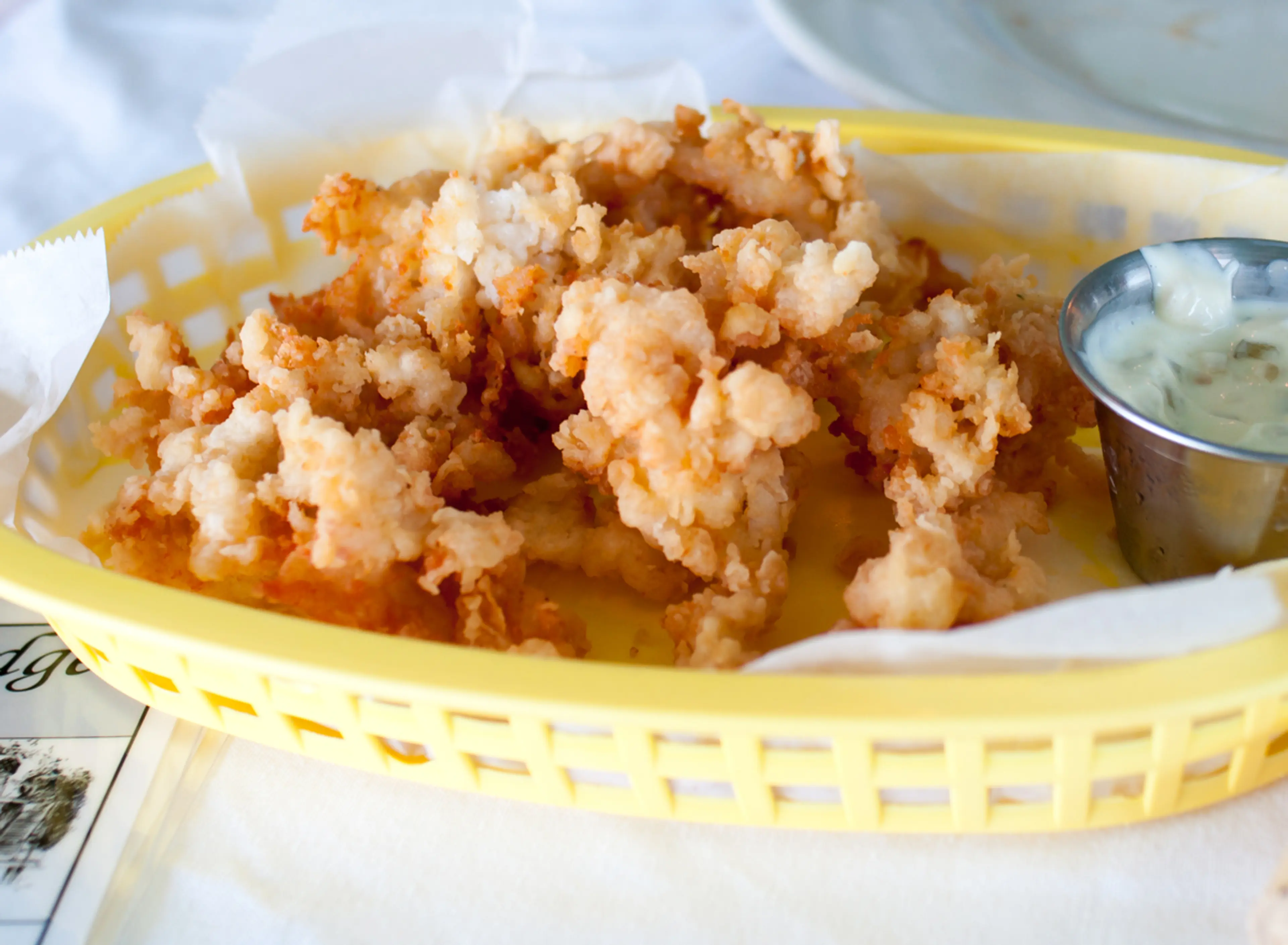
Cracked Conch
This popular Bahamian dish features tenderized, battered, and deep-fried conch served with a side of fries or rice. It's a local favorite and a delicious way to enjoy the Bahamas' abundant conch.
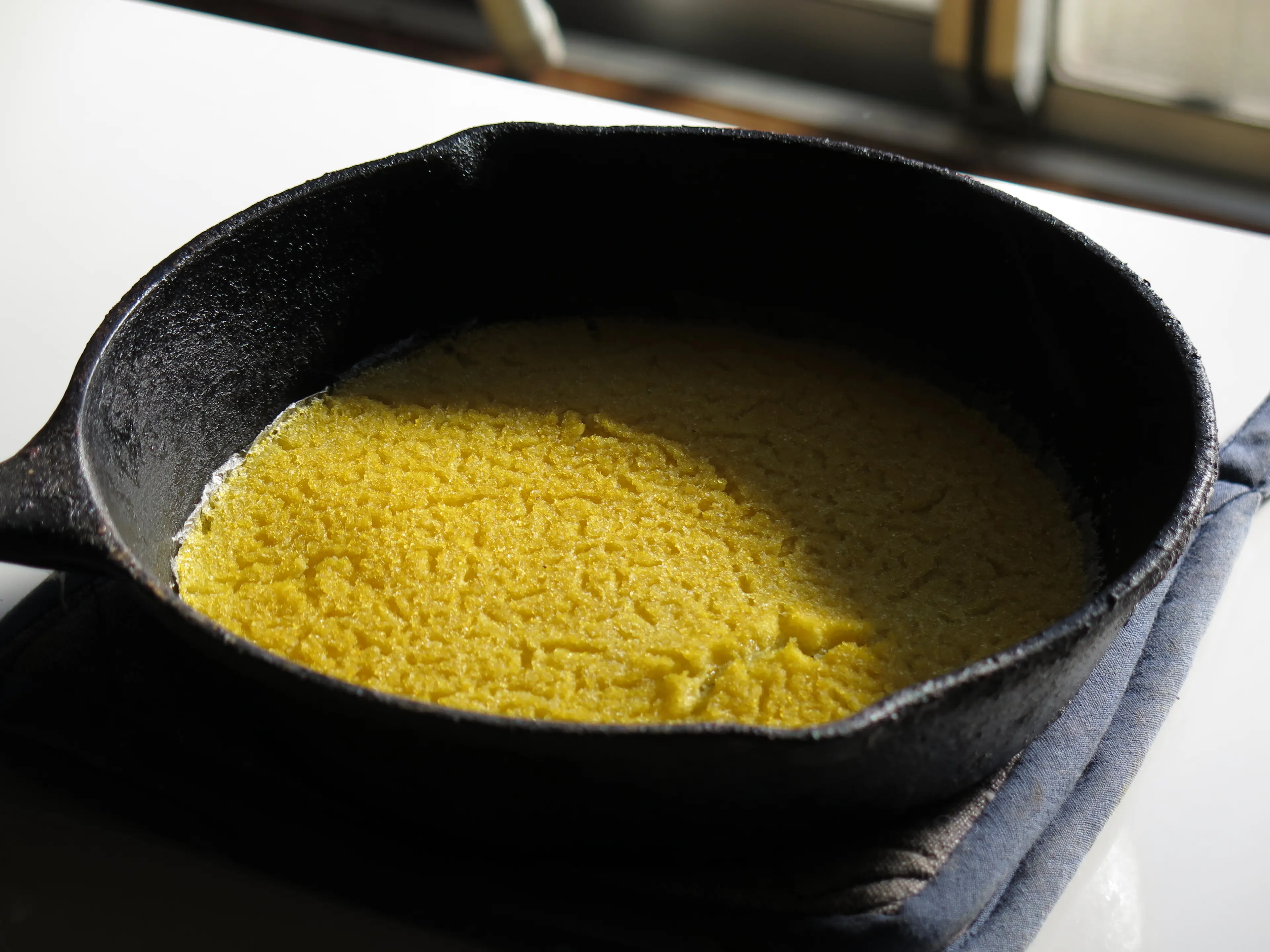
Johnnycakes
A traditional Bahamian bread that's slightly sweet and often served as a side dish with soups or stews. It's a staple in Bahamian cuisine and a must-try for any visitor.

Bahamian Stew Fish
A hearty and flavorful dish made from fish that's been browned and simmered in a rich tomato-based sauce with onions, celery, and a variety of spices. It's a traditional Bahamian dish that's often served for breakfast.
Guava Duff
A traditional Bahamian dessert made from dough that's filled with guava, rolled, boiled, and then served with a sweet butter rum sauce. It's a delicious way to experience the tropical flavors of the Bahamas.
Sky Juice
A popular Bahamian cocktail made from gin, coconut water, and sweetened condensed milk. It's a refreshing and creamy drink that's often enjoyed on hot Bahamian days.

Peas n’ Rice
A traditional Bahamian dish made from pigeon peas and rice that's been cooked with tomatoes, onions, bell peppers, and a variety of spices. It's a staple in Bahamian cuisine and often served as a side dish.
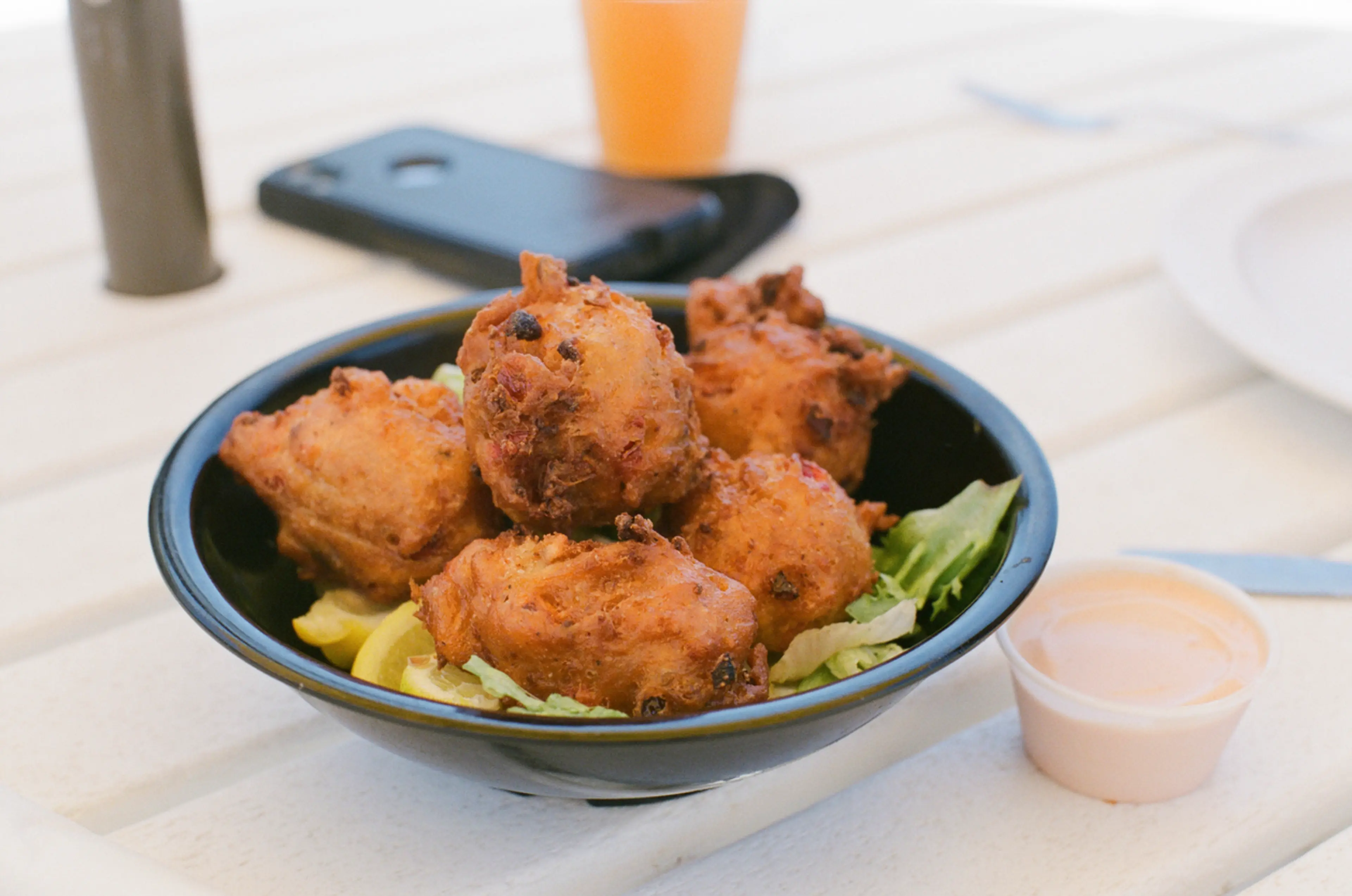
Conch Fritters
A popular Bahamian appetizer made from conch meat that's been mixed with batter and deep-fried. They're often served with a spicy dipping sauce and are a delicious way to start a meal.
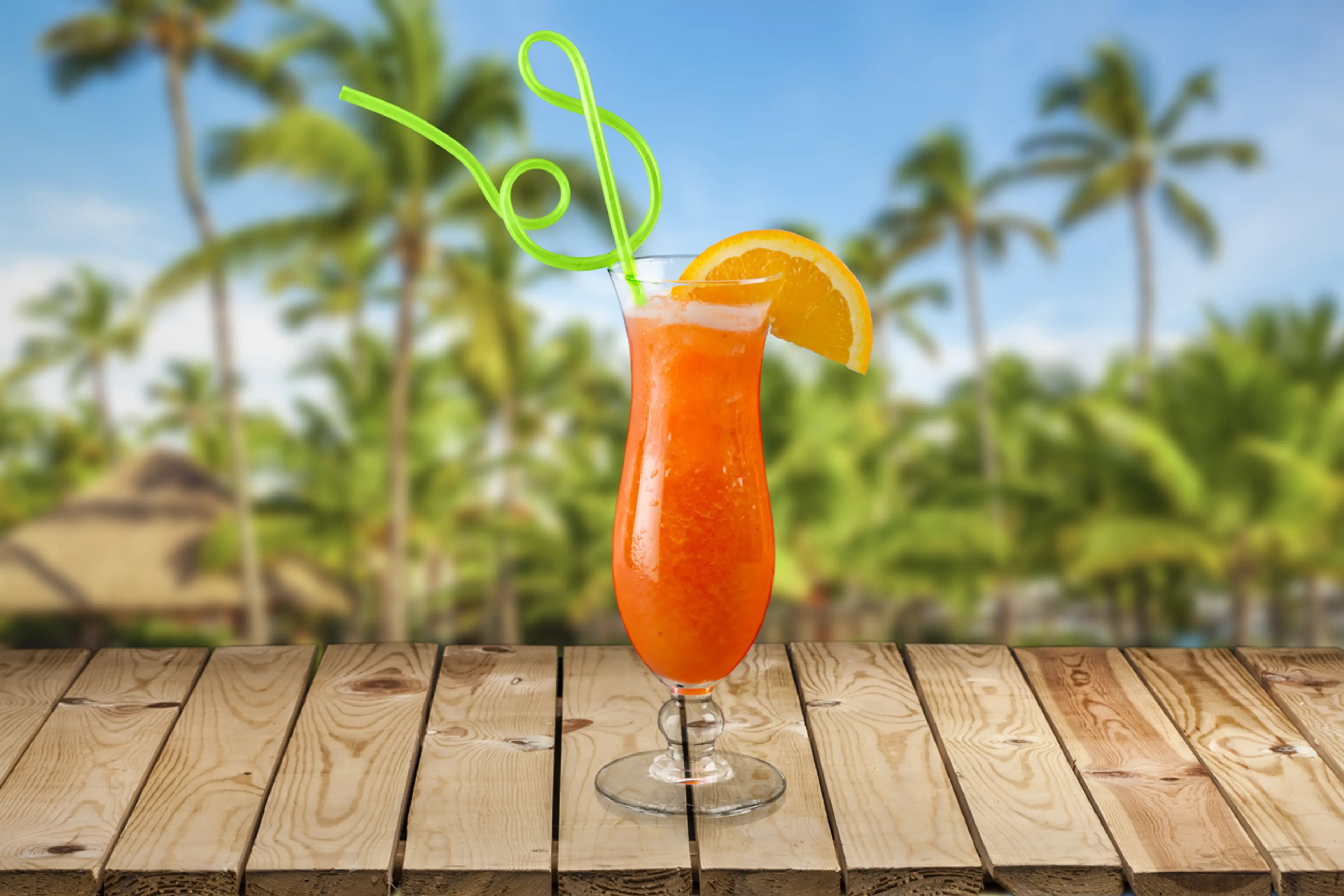
Bahama Mama
A fruity and potent cocktail made from rum, coconut rum, grenadine, orange juice, and pineapple juice. It's a popular drink in the Bahamas and a must-try for any visitor.
Souse
A traditional Bahamian soup made from meat (usually chicken, pork, or mutton) that's been slow-cooked with onions, lime juice, celery, bell peppers, and a variety of spices. It's a hearty and flavorful dish that's often enjoyed for breakfast.
Switcha
A refreshing Bahamian drink made from lime juice, water, and sugar. It's similar to lemonade and is a popular way to cool down on hot Bahamian days.
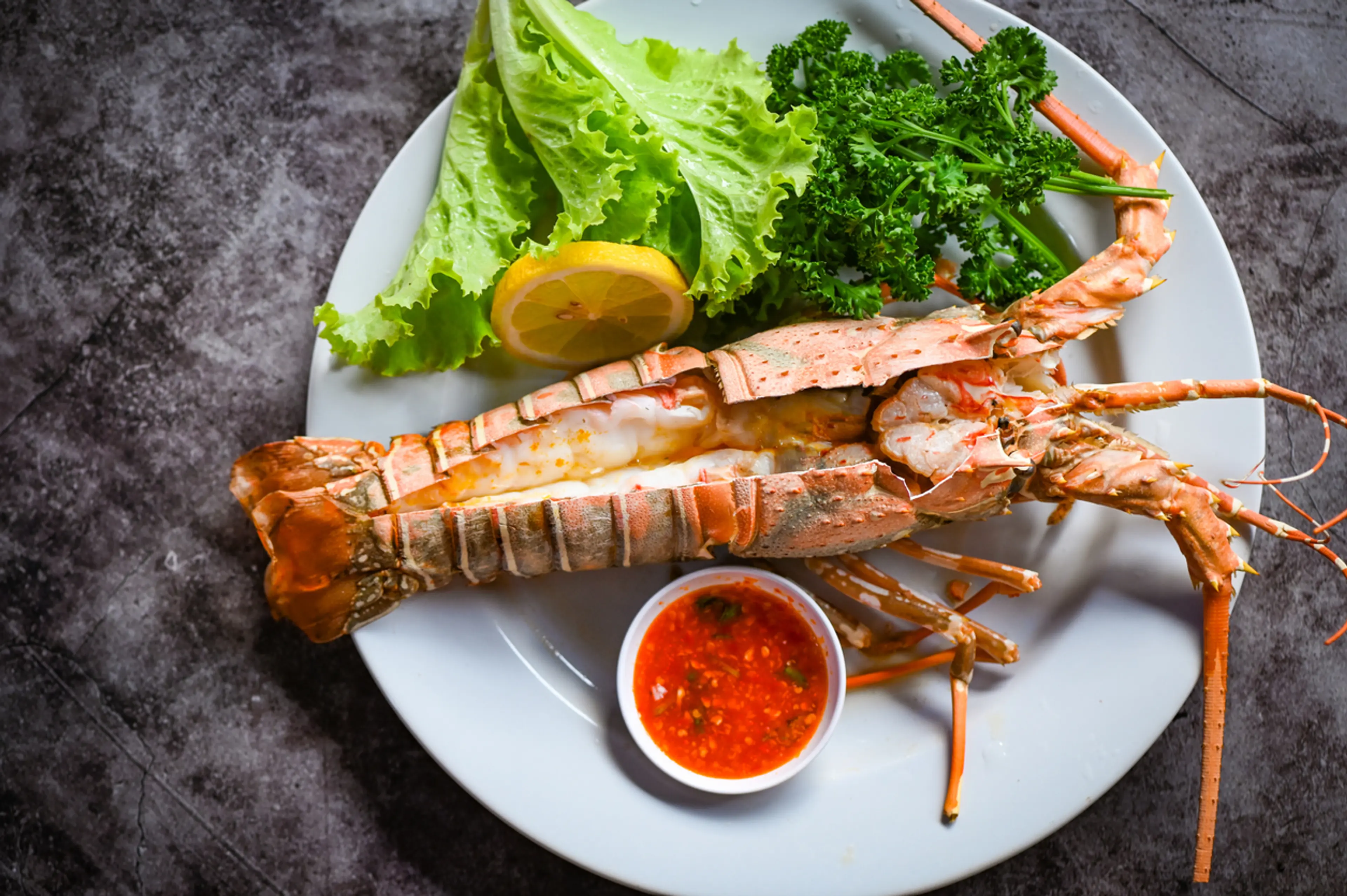
Rock Lobster
A delicious seafood dish made from local Bahamian rock lobster that's often grilled and served with butter. It's a must-try for seafood lovers visiting the Bahamas.
Best time to visit
The best time to visit the Bahamas is from mid-December to mid-April, the country's peak season. During these months, the weather is perfect for beach activities with average temperatures ranging from 70 to 80 degrees Fahrenheit. However, if you're looking to avoid the crowds and enjoy lower rates, the period from late April to early December can also be a good choice, although you might experience some rain due to the hurricane season.
How to get around
Air Travel
The Bahamas is an archipelago with over 700 islands and cays, so air travel is a common method of getting around. The main airports are located in Nassau and Freeport, but there are smaller airports on many of the other islands. Bahamasair is the national airline, but other local carriers like Western Air and Pineapple Air also offer inter-island flights.
Car Rental
Renting a car is a good option if you're planning to explore the larger islands like Grand Bahama or New Providence. Keep in mind that driving is on the left side of the road. Most international car rental companies have branches in the Bahamas, and there are also local rental companies available.
Ferry Services
Ferry services are a popular way to travel between the islands. The Bahamas Ferries company operates regular services between Nassau and several of the Out Islands. There are also numerous private charter companies that offer ferry services.
Taxi
Taxis are readily available in the major towns and at the airports. They are a convenient way to get around, especially in Nassau and Freeport. Taxis in the Bahamas are regulated and have fixed rates.
Public Buses
In Nassau and Freeport, public buses known as 'jitneys' are a cheap and efficient way to get around. They operate on fixed routes and have regular schedules. However, they can be crowded and may not run as frequently in the evenings or on Sundays.
Ridesharing
Ridesharing services like Uber and Lyft are not currently available in the Bahamas. However, there are local ridesharing apps like Bahamas Ride that operate in a similar way.
Bicycles
On the smaller, less populated islands, bicycles are a popular way to get around. Many hotels and resorts offer bicycle rentals to their guests.
Boat Rental
For those who want to explore the Bahamas' beautiful waters and secluded cays, renting a boat is a great option. There are numerous boat rental companies throughout the islands offering a variety of vessels, from small motorboats to larger yachts.
Water Taxis
In areas like Nassau and Paradise Island, water taxis are a fun and scenic way to get around. They operate regular routes and are a popular choice for tourists.
Important information
Currency$ BSD
Time zoneUTC-5
Driving sideLeft
Emergency phone911
Drinking waterYes, but some opt for bottled water
Power sockets
Voltage120 V
Things to know about Bahamas as a first time visitor
1
The official language of the Bahamas is English, so communication should not be a problem for English speakers.
2
The Bahamas uses the Bahamian dollar (BSD), which is pegged 1:1 with the US dollar. US dollars are widely accepted.
3
The Bahamas is generally safe, but like anywhere, it's important to stay vigilant and aware of your surroundings, especially in crowded areas.
4
The Bahamas has a tropical monsoon climate, so it's important to pack light, breathable clothing. Rain gear is also a must, especially during the rainy season from May to November.
5
The Bahamas is made up of over 700 islands and cays, so plan your itinerary carefully depending on what you want to see and do.
6
The Bahamas is in the Eastern Standard Time zone and does not observe daylight saving time.
7
The legal drinking age in the Bahamas is 18.
8
Tipping is customary in the Bahamas. A tip of 15-20% is standard for most services.
9
The Bahamas has a 12% Value Added Tax (VAT) on all goods and services.
10
The Bahamas has strict laws against drug use and possession. Penalties can be severe.
11
The Bahamas is known for its beautiful beaches, so don't forget to pack your swimwear, sunscreen, and beach gear.
12
The Bahamas has a rich cultural heritage. Respect local customs and traditions.
13
The Bahamas has a diverse marine life. If you plan on fishing or diving, be aware of local regulations and protected species.
14
The Bahamas is a popular destination for weddings and honeymoons. If you're planning a special event, be sure to check the legal requirements.
15
The Bahamas has a variety of accommodations to suit different budgets, from luxury resorts to budget guesthouses.
16
The Bahamas has a good network of taxis, buses, and ferries for getting around. Car rentals are also available.
17
The Bahamas has a tropical climate with temperatures ranging from 70°F to 90°F (21°C to 32°C) year-round.
18
The Bahamas has a variety of local dishes to try, including conch salad, johnnycakes, and Bahamian stew fish.
19
The Bahamas has a vibrant nightlife with numerous bars, clubs, and live music venues.
20
The Bahamas has a number of festivals and events throughout the year, including Junkanoo, a street parade with music, dance, and costumes held on Boxing Day and New Year's Day.
Packing List
Clothing
Lightweight clothing
Swimwear
Beach cover-up
Underwear
Socks
Sleepwear
Flip flops
Water shoes
Sunglasses
Hat
Light jacket or sweater for cooler evenings
Toiletries
Travel-sized shampoo and conditioner
Body wash or soap
Toothbrush and toothpaste
Deodorant
Razor and shaving cream
Sunscreen
Aftersun lotion or aloe vera
Insect repellent
Makeup and makeup remover
Hairbrush or comb
Travel-sized laundry detergent
Travel documents and essentials
Passport
Driver's license or ID card
Credit and debit cards
Cash and coins
Health insurance card
Travel insurance documents
Hotel and car rental reservations
Emergency contacts and important addresses
Electronics and gadgets
Smartphone and charger
Headphones
Camera and charger
Memory card for camera
Portable power bank
Travel adapter
E-reader or tablet for entertainment
Miscellaneous items
Snacks for travel
Reusable water bottle
Books or magazines
Travel pillow and blanket
Earplugs and eye mask
First aid kit
Beach bag
Beach towel
Snorkeling gear
Weather Conditions
The Bahamas is a tropical paradise that offers warm weather year-round. However, the climate can vary slightly depending on the time of year you visit. The Bahamas experiences two main seasons: the wet season (May to November) and the dry season (December to April). The wet season is characterized by higher humidity and frequent, short, intense rainfall, often accompanied by thunderstorms. If you're planning to visit during this time, it's advisable to pack a light rain jacket or umbrella. The dry season is generally the best time to visit the Bahamas for beach activities, as it offers plenty of sunshine and less rainfall. Average temperatures during this time range from 70-75°F (21-24°C) in the cooler months to 80-85°F (27-29°C) in the warmer months. Remember to pack sunscreen, hats, and light clothing to protect yourself from the sun. Regardless of the season, the Bahamas can be prone to hurricanes, particularly between June and November. It's always a good idea to check the weather forecast and any travel advisories before your trip. In terms of sea temperatures, they are generally warm all year round, ranging from 73°F (23°C) in February to 82°F (28°C) in August, making it perfect for water activities like swimming, snorkeling, and diving. Remember, the weather can change quickly in the Bahamas, so it's always a good idea to be prepared for a variety of conditions. Enjoy your trip to this beautiful island nation!
| Month | Hi / Lo (°C) | Weather Overview |
|---|---|---|
January | 28° / 17° | January is a cooler month in the Bahamas with temperatures ranging from 17 to 28 degrees Celsius. It's a great time to visit if you prefer milder weather. |
February | 28° / 17° | February is similar to January with temperatures ranging from 17 to 28 degrees Celsius. It's still a good time to visit for those who enjoy cooler weather. |
March | 29° / 18° | March sees a slight increase in temperature, ranging from 18 to 29 degrees Celsius. The weather is still quite pleasant for outdoor activities. |
April | 30° / 20° | April is when the temperatures start to rise, ranging from 20 to 30 degrees Celsius. It's a good time to visit for beach activities. |
May | 31° / 22° | May is warmer with temperatures ranging from 22 to 31 degrees Celsius. It's the beginning of the summer season, perfect for sunbathing and swimming. |
June | 33° / 24° | June is a hot month with temperatures ranging from 24 to 33 degrees Celsius. It's a great time for water sports and other outdoor activities. |
July | 33° / 24° | July is similar to June with temperatures ranging from 24 to 33 degrees Celsius. It's a peak tourist season, so expect crowds at popular spots. |
August | 33° / 24° | August is also a hot month with temperatures ranging from 24 to 33 degrees Celsius. It's a good time to visit for those who enjoy hot weather. |
September | 32° / 24° | September sees a slight decrease in temperature, ranging from 24 to 32 degrees Celsius. It's the start of the fall season, but still warm enough for beach activities. |
October | 31° / 22° | October is a bit cooler with temperatures ranging from 22 to 31 degrees Celsius. It's a good time to visit for those who prefer milder weather. |
November | 29° / 20° | November sees further decrease in temperature, ranging from 20 to 29 degrees Celsius. It's the start of the winter season, but still warm enough for outdoor activities. |
December | 28° / 18° | December is a cooler month with temperatures ranging from 18 to 28 degrees Celsius. It's a great time to visit if you prefer milder weather and less crowded tourist spots. |
Did you know?
Places near by Bahamas
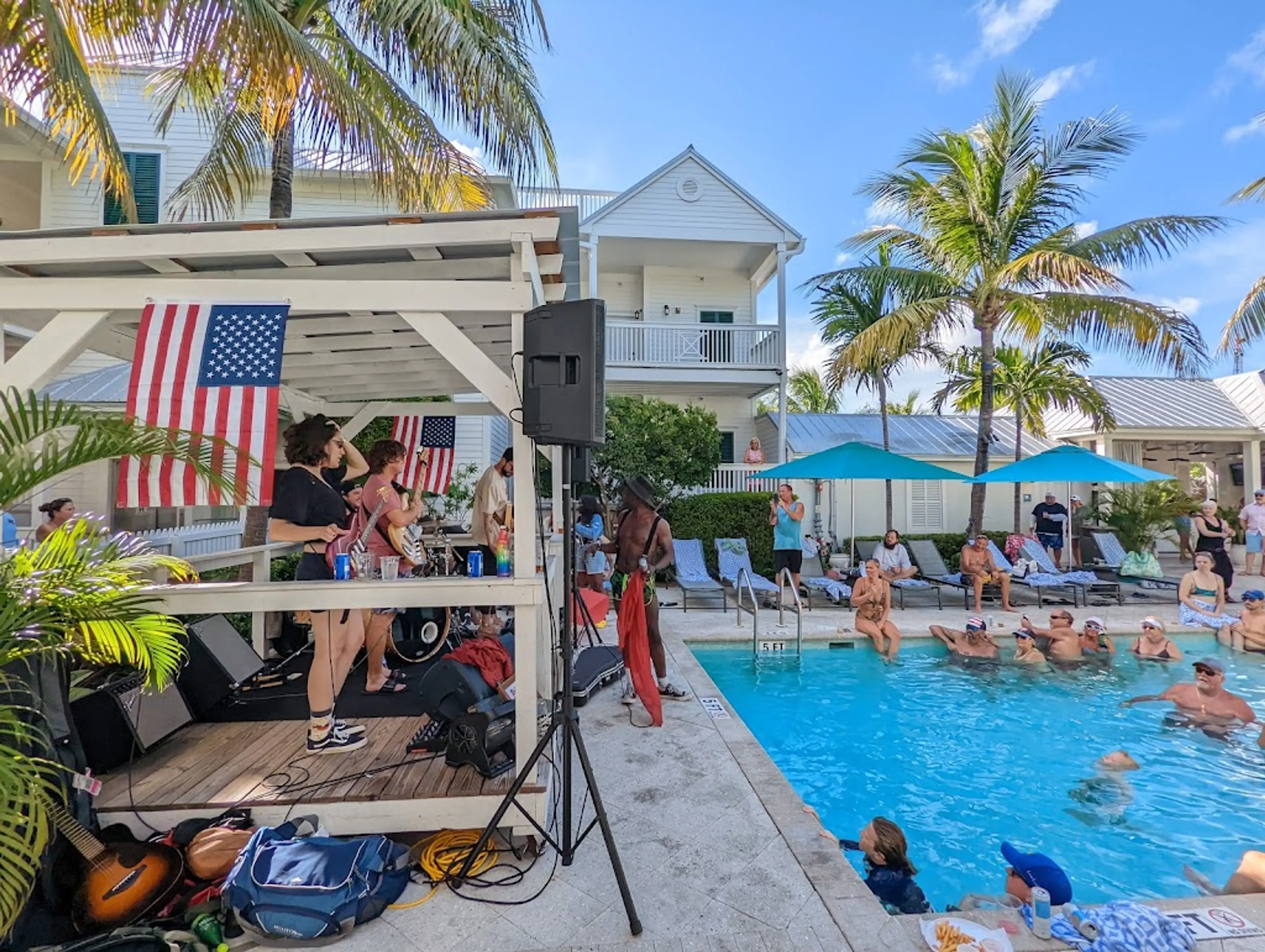
Key West
A tropical paradise with a rich history and vibrant nightlife. Known for its stunning sunsets, historic homes, and beautiful beaches.
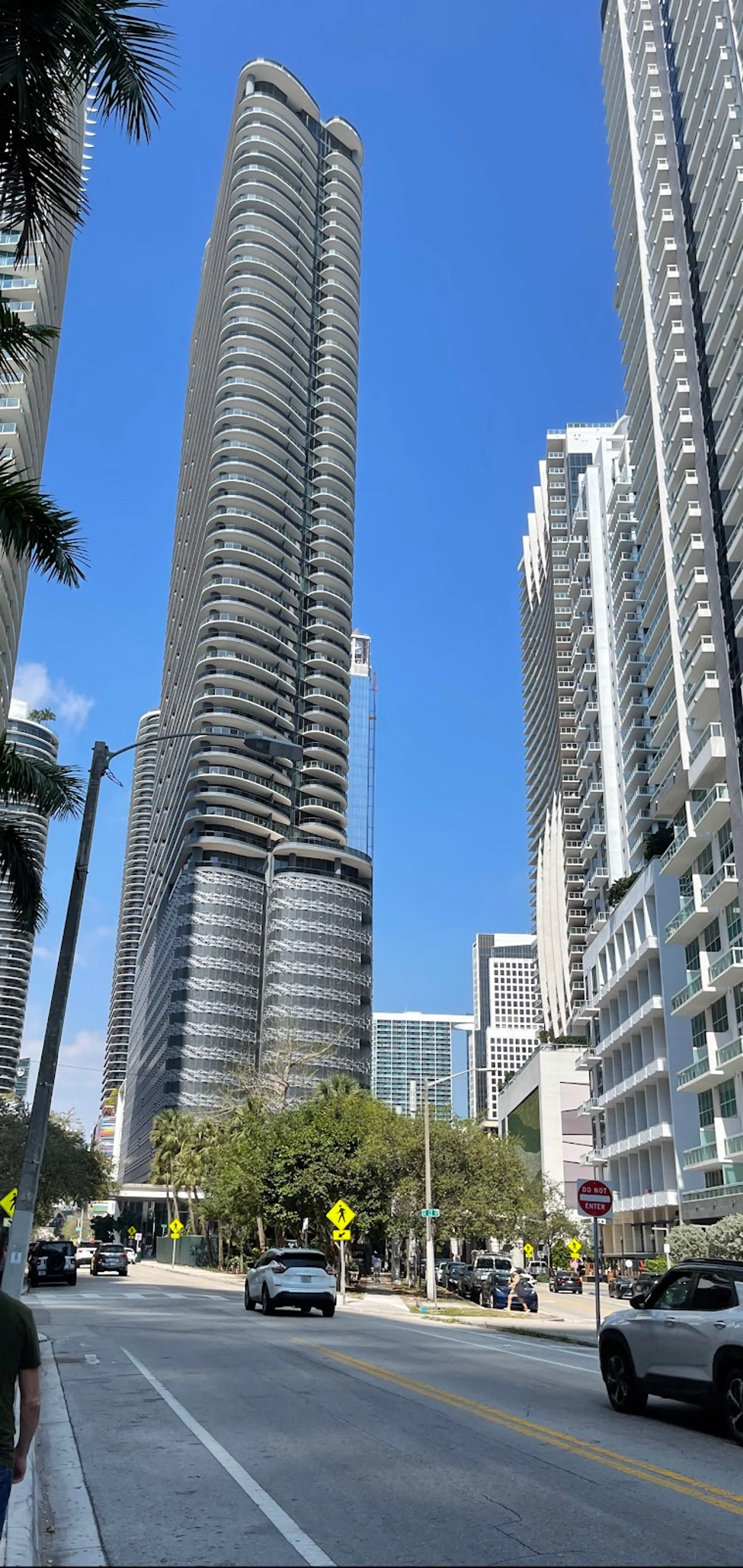
Miami
A vibrant city known for its beaches, nightlife, and cultural scene. Home to a diverse population and a thriving arts district.

Fort Lauderdale
A city known for its beaches, boating canals, upscale outdoor restaurants, bars, boutiques and luxury hotels.
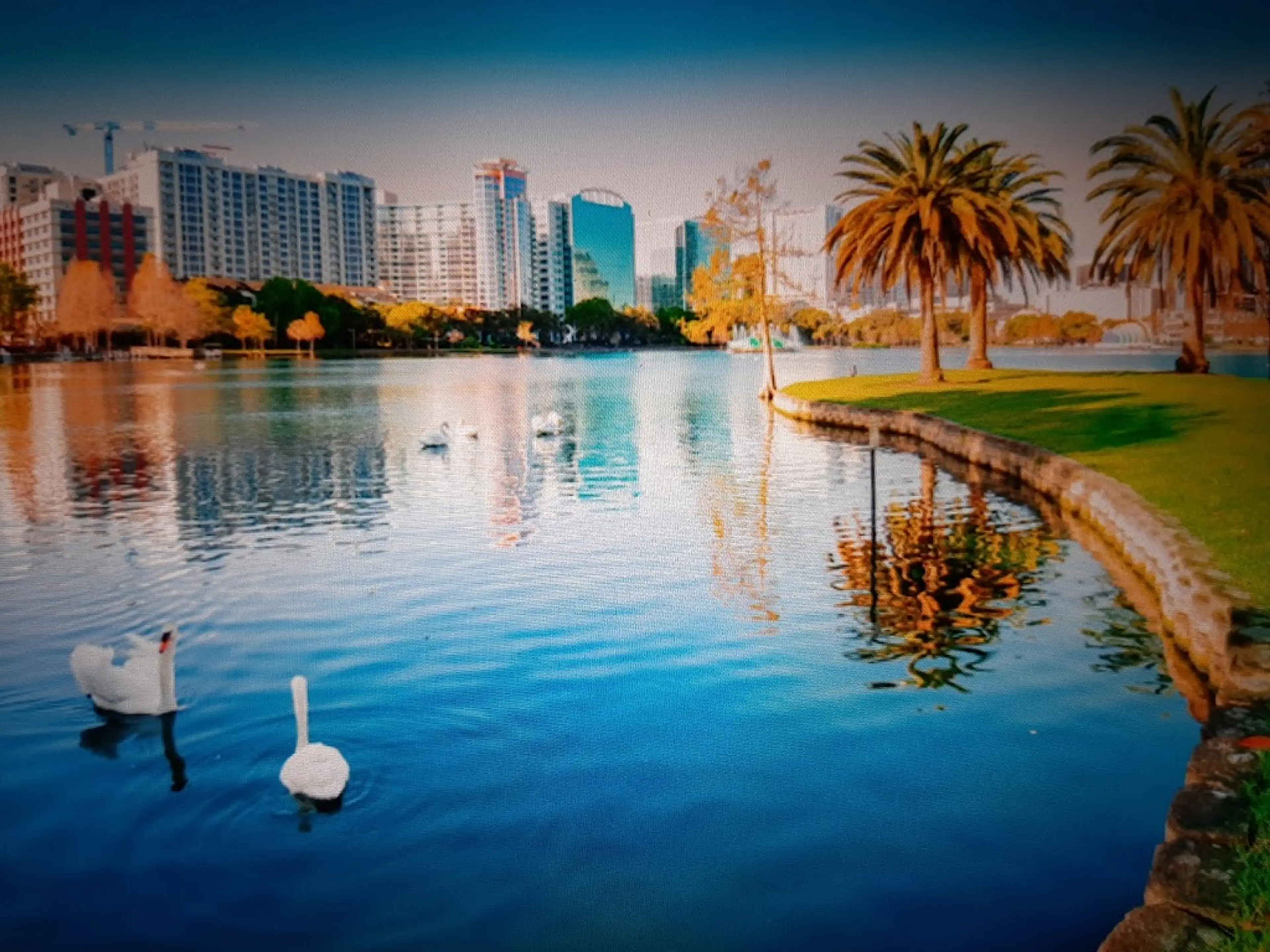
Orlando
Home to more than a dozen theme parks, including Walt Disney World and Universal Orlando.
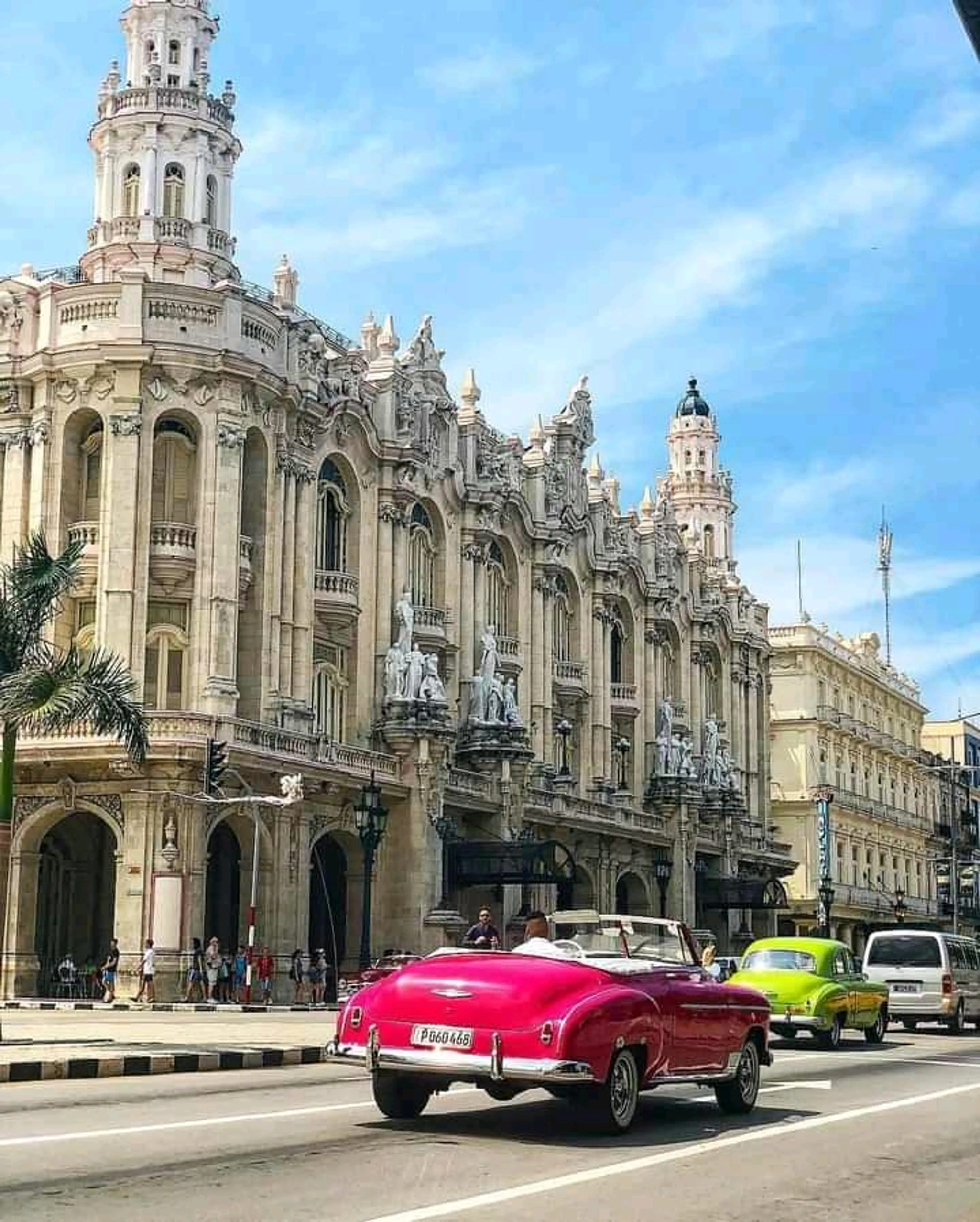
Cuba
A Caribbean island nation known for its white-sand beaches, rolling mountains, cigars and rum.
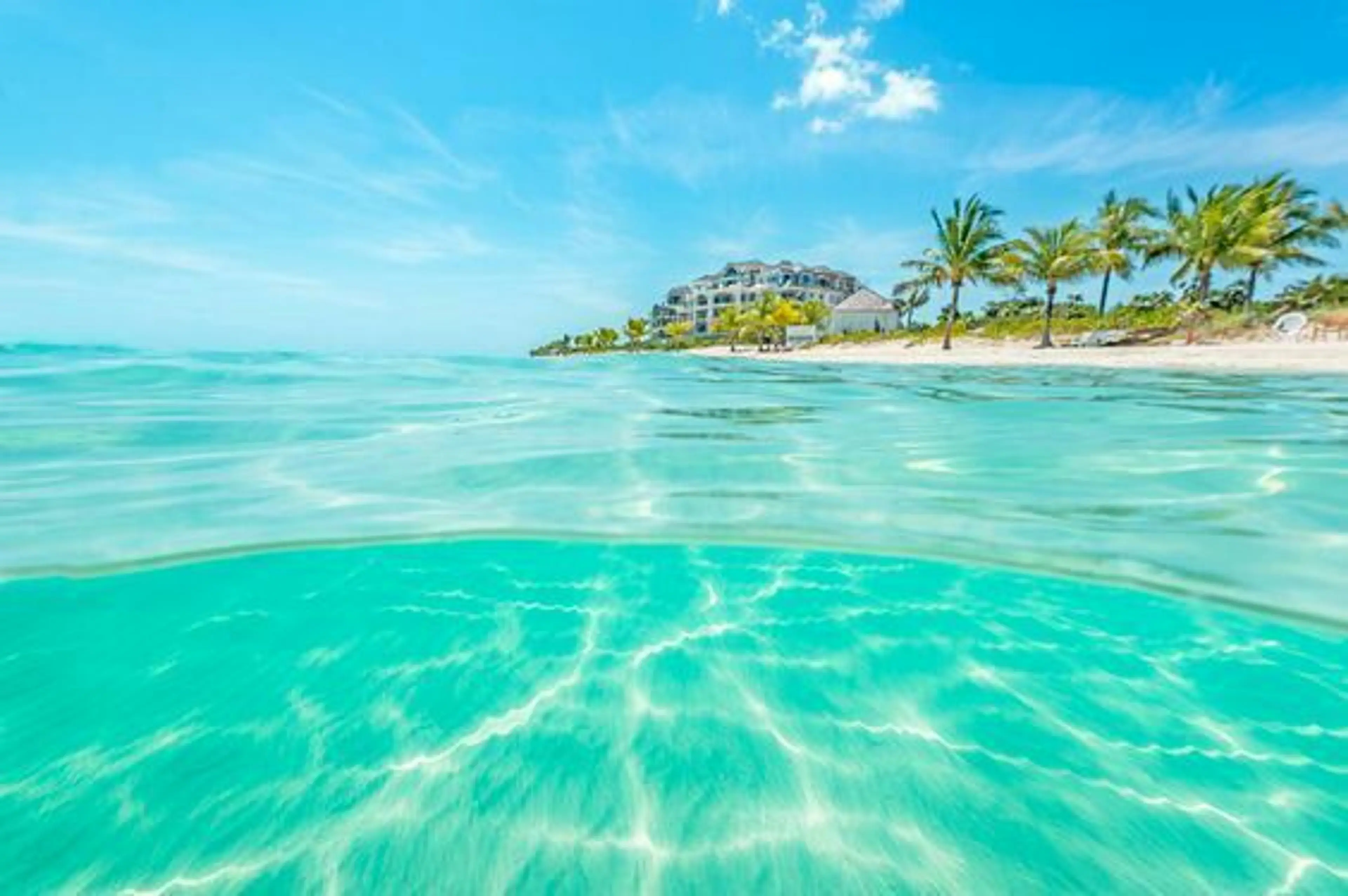
Turks and Caicos
A British Overseas Territory, known for its pristine beaches, vibrant coral reefs, and luxury resorts.
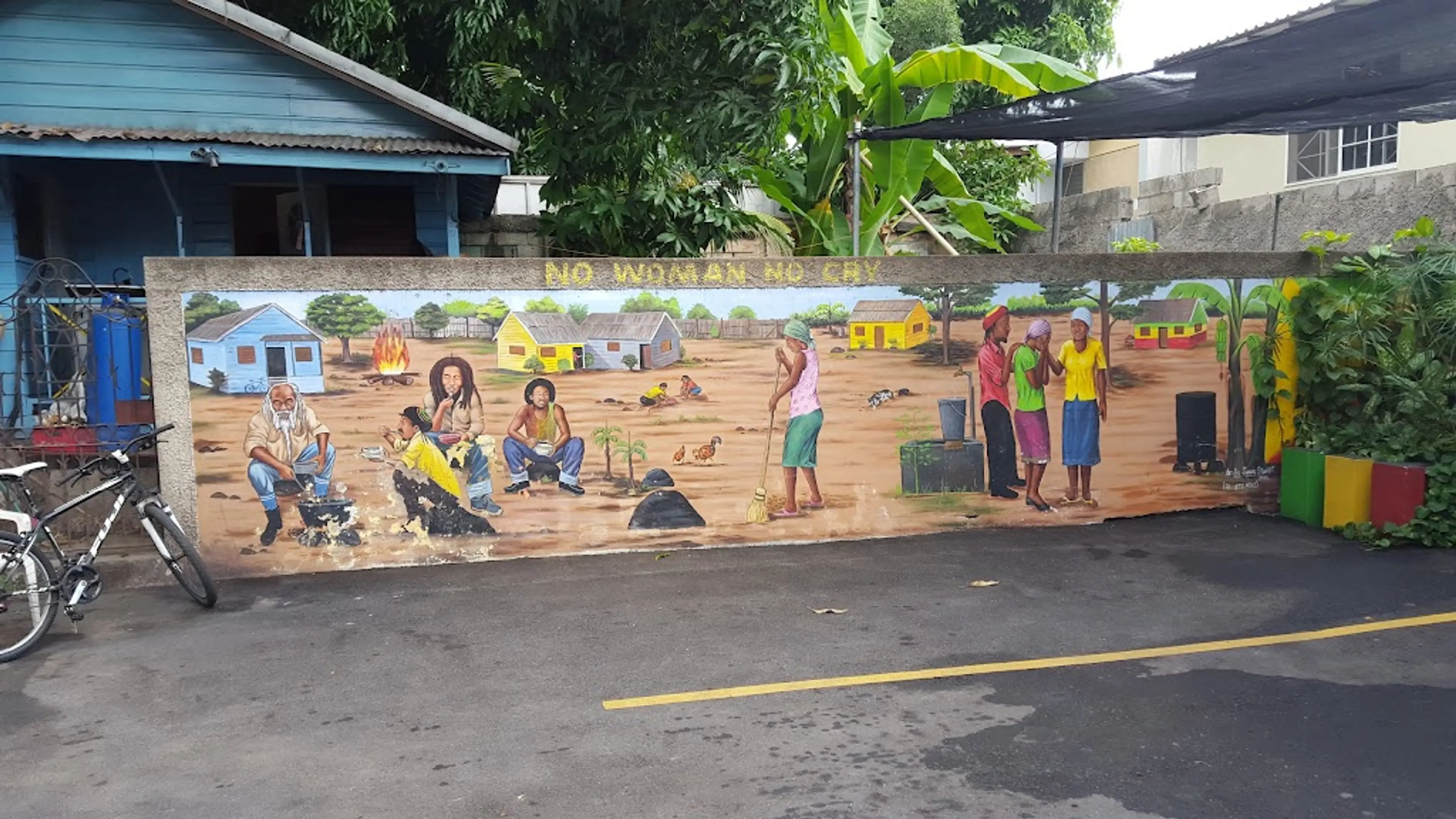
Jamaica
An island nation in the Caribbean, known for its lush topography of mountains, rainforests and reef-lined beaches.
